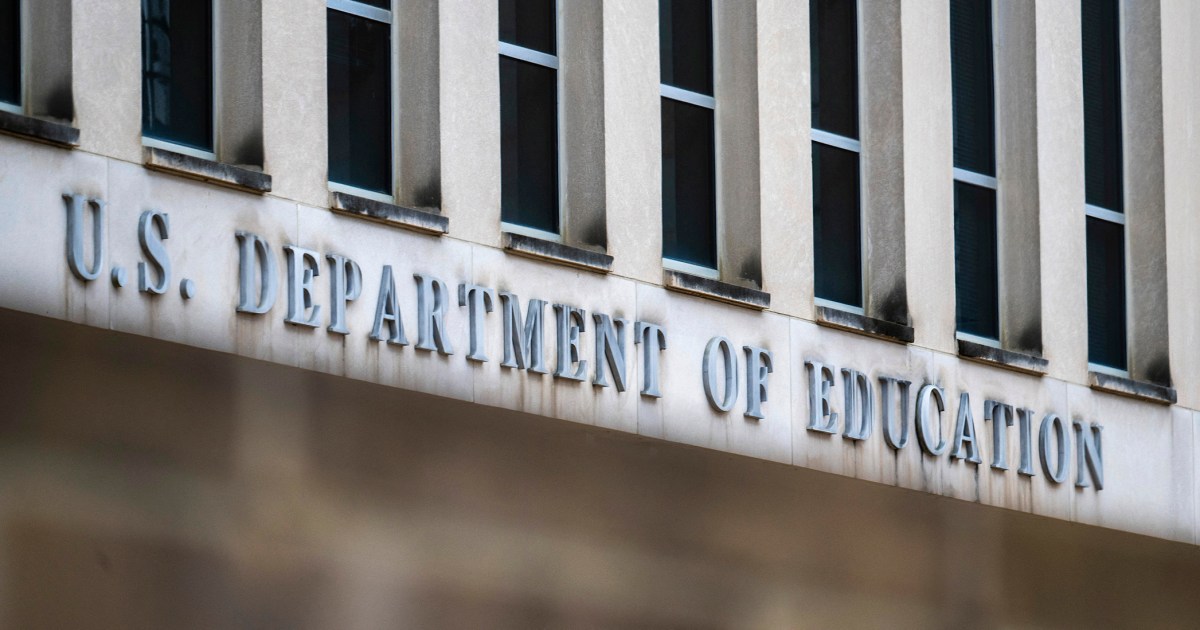Education
Democratic-led cities and states push back on threats to cut US school funding over DEI

Some Democratic-led states and cities are pushing back on a Trump administration threat to cut education funding over diversity, equity and inclusion programs, creating a standoff that could test how far the White House is willing to go to press its demands on the nation’s schools.
State leaders in Minnesota and New York said they will not comply with an Education Department order to gather signatures from local school systems certifying compliance with civil rights laws, including the rejection of what the federal government calls “illegal DEI practices.” Chicago’s mayor promised to sue over any cuts. California and Vermont told schools they don’t need to respond.
It amounts to some of the most forceful opposition the Education Department has faced as it uses federal funding as leverage to enact President Donald Trump’s agenda on issues from DEI to campus antisemitism and transgender athletes. The White House has targeted colleges and K-12 schools alike, but unlike universities that rely greatly on federal grants and contracts, school systems get the vast majority of their money from state and local sources.
In a letter Monday to the Education Department, Minnesota’s education chief said the Trump administration overstepped its authority with its latest demand, adding that there’s nothing illegal about DEI.
“Threats to this funding without backing in law or established requirements put key programs at risk that students and schools depend on every day,” said Willie Jett, Minnesota’s education commissioner. The federal department “does not have the authority to unilaterally overrule the will of Congress.”
Jett said his letter would “serve as our response” to the Trump administration’s demand.
It follows a Friday letter from New York’s education office challenging the federal government’s latest demand. It said New York already has provided assurances that it follows federal law and “no further certification will be forthcoming.”
The U.S. Education Department told state agencies in a letter Thursday they must sign a document saying they follow federal antidiscrimination laws and get the same assurance from schools. The document threatens to cut federal money for any civil rights violation, including using DEI practices “to advantage one’s race over another.”
On Tuesday, Education Secretary Linda McMahon commended Puerto Rico for being the first to submit its certification. “Every state that wants to continue receiving federal funds should follow suit,” McMahon posted on X.
The letter does not carry the force of law but threatens to use civil rights enforcement to rid schools of DEI practices. Schools that continue such practices “in violation of federal law” can face Justice Department litigation and a termination of federal grants and contracts, it said.
The letter initially gave states 10 days to submit the certification. On Monday, the Education Department extended the deadline to April 24.
A department spokesperson said the agency is “simply asking school districts to certify they are following the law and not using race preferences or pernicious race stereotypes in schools.”
Even some Republican-led states believe they don’t need to get the document signed by each school. Missouri’s education office said schools previously provided assurances that should cover the department’s demand and it will reach out to districts “if additional information is necessary.”
Others are moving to follow the order, including Virginia and Arizona, where state education chief Tom Horne said the order “aligns completely with my philosophy.”
Vermont’s education chief assured schools the state supports DEI practices and said superintendents won’t need to sign the certification. Instead, the state will assure federal officials it’s already following federal law, Zoie Saunders, the state’s education secretary, said in a Monday letter to school districts.
The Illinois board of education rebuked the federal agency, saying it’s “attempting to exert power over every district in the country — even as it claims it’s returning education to the states.” Chicago Mayor Brandon Johnson, a Democrat, said his city is willing to go to court over the order, which he called federal overreach.
The New York and Minnesota letters both cite past comments from Betsy DeVos, Trump’s education secretary during his first term, extolling the virtues of diversity and inclusion. In a 2020 memo to agency staff, DeVos wrote that “embracing diversity and inclusion are key elements for success.” The states argue the Education Department is shifting its position without explanation.
The states also accuse the Education Department of making broad declarations about the illegality of DEI without citing policies that violate federal law. Minnesota’s letter said if the federal agency has identified DEI practices that violate civil rights law, “we request advisement of them.”
Many states said they’re still reviewing the letter.
